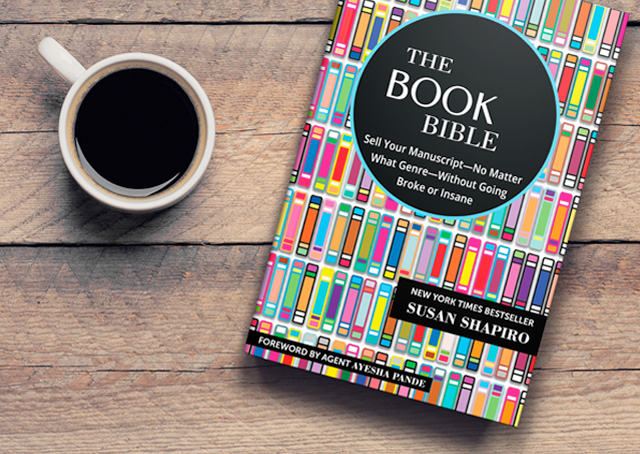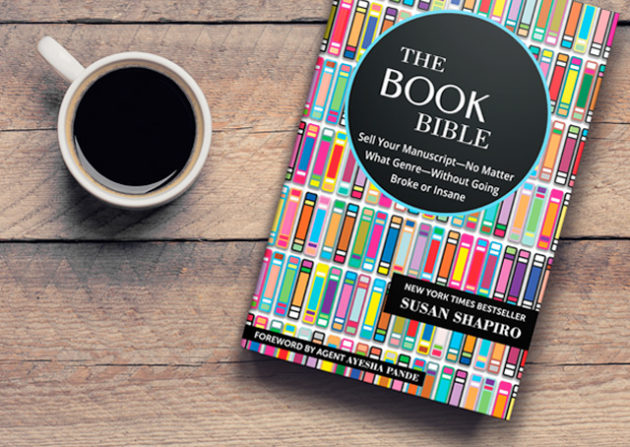
How to Be a Writer, With Susan Shapiro
Susan Shapiro is a prolific author and a well-loved teacher of both fledgling and experienced writers. Recently, I took her one-shot online essay seminar, and after Susan’s critique, I made changes and sold my piece a week later. After publishing her own memoir last year, she has just released a new book, The Book Bible, on how to sell your manuscript without going broke or insane. It’s is already Amazon’s #1 pick on book publishing. We chatted recently about her best kernels of advice for writers.
I see why you titled this The Book Bible. How daunting was it to take on writing such a comprehensive book?
This grew out of the writing classes and seminars I’ve been teaching for decades at The New School, NYU and Columbia University, as well as online since the pandemic. It’s been very exciting helping many students publish short pieces, then get agents and book editors for their debut memoirs, novels, essay collections and children’s literature. I went from writing short pieces to books myself twenty years ago. After The Byline Bible, my first writing guide for short pieces, did well in 2018, this seemed a natural sequel. It was fun to put it all together.
Who would benefit the most from this book–new writers or advanced writers?
Both. I intentionally love a mix in my writing classes of young aspiring writers and older more seasoned people, some who already have a lot of clips or books out. But if you have a memoir out, you might not know how to transition to fiction. Or understand the breakdowns of picture books versus middle grade versus Young adults. Many prolific authors have taken my classes to learn how to write and publish short journalistic pieces in top publications.
What is the first assignment you give writers?
In The Book Bible I include the first piece I have my New School students write: a humiliation essay where they chronicle their most humiliating experience they can put their name on. That’s led to so many books I recommend people start with 3 pages, which is much easier to publish than 300.

What are 3 keys to getting your book published?
1. Read many of the type books you want to be writing, especially current debuts from non-famous authors so you know the market.
2. Make sure you have a system to get tough feedback on your work, whether it’s from an MFA program, independent writing class, free weekly writing workshop, a colleague who has published a similar book you admire, or a professional ghost editor you hire to help you.
3. Start by publishing a short piece as I just mentioned.
What do you mean when you say “writing is a collaborative process?”
In 40 years I’ve never met anyone who sits alone in their room, finishes a book on their typewriter or computer, sends it in to agents and editors and gets a book deal from a big publisher. Much more common would be an undergraduate studying creative writing for four years or a student finishing a two-year MFA program where they’ve been bringing in pages of their book and listening to feedback for a while. In my private weekly writing group many people have workshopped books over the years. I personally have hired ghost editors to help me get book deals from the biggest publishers. And once you sell a book, you work with tons of publishing insiders on it: your editor, the artists doing the cover, copyeditor, proofreader, marketing and sales people, often a public relations team.
You advise writing a short piece for a newspaper or magazine.
It’s clearly easier to write and publish 3 pages than 300 pages. Starting by selling a short piece is just the best, fastest, easiest way to launch a book. And if you want to write a book but can’t figure out how to publish 3 pages, I have doubts you’ll be able to get a book deal.
Why is it important to study your favorite books and take notes?
Well, a lot of aspiring authors write in a vacuum. They’re not familiar with what’s going on in their category now, so they’re making a lot of mistakes based on outdated ideas of what might be publishable. You could turn off agents and editors if you’re uninformed and don’t know your own genres. You want to do your homework and make sure you understand the market. There’s a line I like – the harder I work, the luckier I get.
Why should you mine your own life for a story?
Well, if you want to publish personal essays or memoirs, that’s the definition of those genres. But there’s lots of books you can publish where you don’t have to reveal anything about yourself if you don’t want to – for example –fiction or a biography.
There are a lot of books about writing. What sets this one apart?
I wanted to do something different than all the other writing guides out there which tended to focus on one genre, like writing a novel or a memoir. So I intentionally included many different categories of books. I’m the author or coauthor of 17 books in 8 different genres. I feared that made me a literary dabbler but it turns out to be very helpful to all aspiring authors. It offers the kind of overview I always wish I’d had before I started.
Lynn Brown Rosenberg has been published in Salon, The Forward, The Sunday Times of London and The New York Jewish Week.



